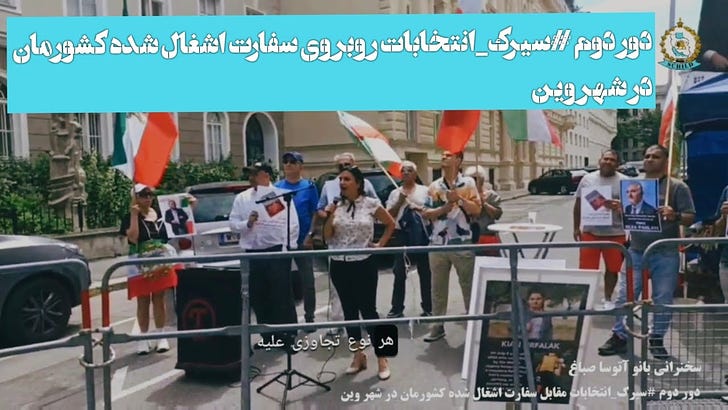The strategy for Iranian patriots
Emphasising common causes through cross-promotion and targeted campaigning
The last two months have witnessed significant developments for Iranian monarchists:
The address by Shahanshah Reza Pahlavi to National Conservatism and interview with CBN News.
An interview with Shahbanou Farah Pahlavi with the European Conservative magazine.
An interview with Polish MEP Dominik Tarczynski by Patrick Bet David (who also interviewed Reza Pahlavi last year), in which Iran is referred to. Links already exist with MEPs from the same ECR group showing support for Iranian people.
Greater efforts to build Iranian-American support for the election campaign of Donald Trump.
Growing awareness of Iranian aspirations among Arab voices on social media (not least from Iraq and Yemen)
Growing resistance to Islamic Republic regime agendas in Syria and Lebanon, notably (but not exclusively) among Druze and Christian communities, in light of the Majdal Shams attack and the chicken coop incident which caused ridicule throughout the Arab World.
All of the above must influence the strategy to build support for the return of a constitutional monarchy to Iran, which involves courting the natural allies of monarchists in European and American patriots. Where links already exist as shown above, this really shouldn’t be too difficult.
The alliance of patriotic Iranians with European and American counterparts is natural, as it’s based on shared opposition to Leftism, Islamism and Globalism. Common concerns on migration, national security and energy security can convince people of the merits of bringing the monarchy back to Iran. Furthermore, Iranians share with Eastern Europeans an experience of tyranny.
It is pointless to seek support from Western liberals and Leftists who appease Islamists, and whose zeitgeist is not conducive to the nation-state, history, culture and identity which Iranians cherish. Western progressives, especially American ones, have short attention spans and care more about trying to “feel good” than doing anything of substance. In view of this, courting conservative, Christian and Jewish groups makes more sense (especially on the question of religious freedom).
Cultivating relationships with the Arab World, and the various communities in the Middle East, is equally important. Monarchists can leverage the legacy of good relations between pre-1979 Iran and the countries of the region, and the long-held tradition of religious tolerance which characterised the Pahlavi era and most Iranian dynasties going back to the Achaemenids.
Cross-promotion of Iranian nationalism and monarchism with European and American conservative causes makes perfect sense in view of shared interests and aligned ideologies. National Conservatism has taken over the Right, and emphasises the nation-state, culture and values.
Tailored campaigning can reach European and American patriots, as well as Christian, Jewish and Arab interest groups in a way that resonates with their interests, wherever it coincides with the interests of Iranians. The common themes of stability, security, religious freedom and tolerance, and cooperation in cultural, scientific and economic fields.
The campaign should be aimed in Europe, America and the Middle East to underline the aspirations of the Iranian people and the message that resolution of conflicts are impossible without removal of the Islamic Republic regime.


